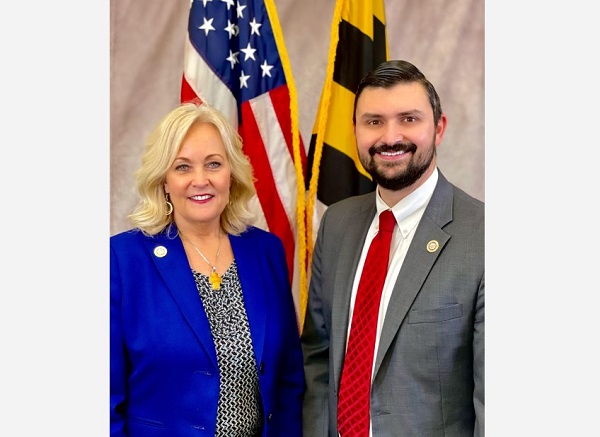The following is an editorial piece from Delegates Kathy Szeliga and Ryan Nawrocki.
Did you know that Governor Wes Moore has announced that one of his legislative priorities this year is to expand low-income housing across Maryland? Moore has said that he wants to create 96,000 low-income housing units.
One of his bills, The Housing Expansion and Affordability Act (SB484/HB538), would allow taller and denser developments than what the local zoning allows. So, in areas zoned for single-family homes, that might mean duplexes, triplexes, or even high-rise apartments.
But most alarmingly, the legislation would make it tougher for localities to stop or even slow developments because of serious infrastructure concerns, like traffic congestion, water and sewer infrastructure, school capacity, or even hospital bed capacity. When Maryland schools continue to struggle with underperformance, often related to classroom size, we will just ignore test scores and cram more kids into classrooms! And we couldn’t even consider the fact that the Back River Wastewater Treatment Plant regularly spews raw sewage into the Chesapeake Bay when looking at local infrastructure concerns.
Baltimore County Executive Johnny Olszewski, Jr. has introduced his own legislation bypassing County Council approval for mixed-use and low-income housing developments. This directly impacts locations such as White Marsh Mall and Eastern Avenue, which face overburdened schools, roads, and other public facilities.
The Olszewski administration’s Bill 3-24 proposes concentrating dense low-income housing developments into numerous “retrofit nodes,” as defined by the Master Plan—which the County Council is still deliberating. This means that the entire development review process would lie solely in the Executive Branch, circumventing the County Council and the communities it represents. This process would circumvent the Council’s land use authority as granted by the State of Maryland and enumerated in the County Charter and virtually remove constituent input on any proposed development.
County Executive Olszewski’s bill would allow the planning board to evaluate and approve mixed-use projects going forward, unlike planned unit developments that require developers to host community input meetings and add a public benefit. If they receive county funds, developers must set aside a percentage of the project units as low-income housing. The number of required low-income units would range from 10% of developments with 20-34 units to 20% for those with 50 or more units.
Another concerning piece of legislation at the state level requested by Governor Moore—HB 3 and SB 356—would undermine local authority and make it more difficult for counties to address critical issues such as infrastructure and school overcrowding. The General Assembly bills would require Baltimore County to implement an “expedited review process” for affordable housing projects and an expedited process for zoning changes for such projects, eliminating the people’s local representation from the development review process. In addition, it would enable larger and denser development than what is allowed in the zoning regulations of Baltimore County so long as these proposals include affordable housing. This would be in effect within one mile of any rail stop (Light Rail, Metro, MARC, etc.).
The Baltimore County Council has a very active schedule over the next few months, including the likely adoption of an Adequate Public Facilities Ordinance to regulate development in new school districts. The county’s mixed-use legislation preempts that discussion, which we emphatically reiterate, must occur first. And the Moore administration’s bill is far worse.
We know that all this talk of low-income housing means that our communities in eastern Baltimore County will be asked to bear more than our fair share of this construction. Wealthy areas like Pikesville, Millers Island, and Towson won’t see their fair share. Paying developers with our tax dollars to build low-income housing in our communities while unilaterally changing zoning laws to force them into middle-class areas is wrong. It will directly threaten our quality of life in eastern Baltimore County.
We agree with Councilmen David Marks, Todd Crandell, Wade Kach, and others who are concerned the legislation will remove the council’s needed input, review, or approval – and, as a result, the community’s – ability to weigh in on high-density projects.
When we attended the community input meetings regarding the White Marsh Mall apartments over the past year, we repeatedly heard how residents are fed up with traffic, school overcrowding, and unbelievable wait times at local hospitals. There was bipartisan pushback against the developers at these meetings.
Gov. Wes Moore and Co-Executive Johnny Olszewski have both introduced authoritarian bills that remove the democratic process and cancel the local zoning laws and local representation. These bills would dramatically alter the balance of power, granting the executive branch and unelected bureaucrats unprecedented land use authority at the expense of the most impacted communities. We will keep you updated on the state-wide legislation and the Baltimore County bill, which will be discussed on February 27th and voted on March 4th.


